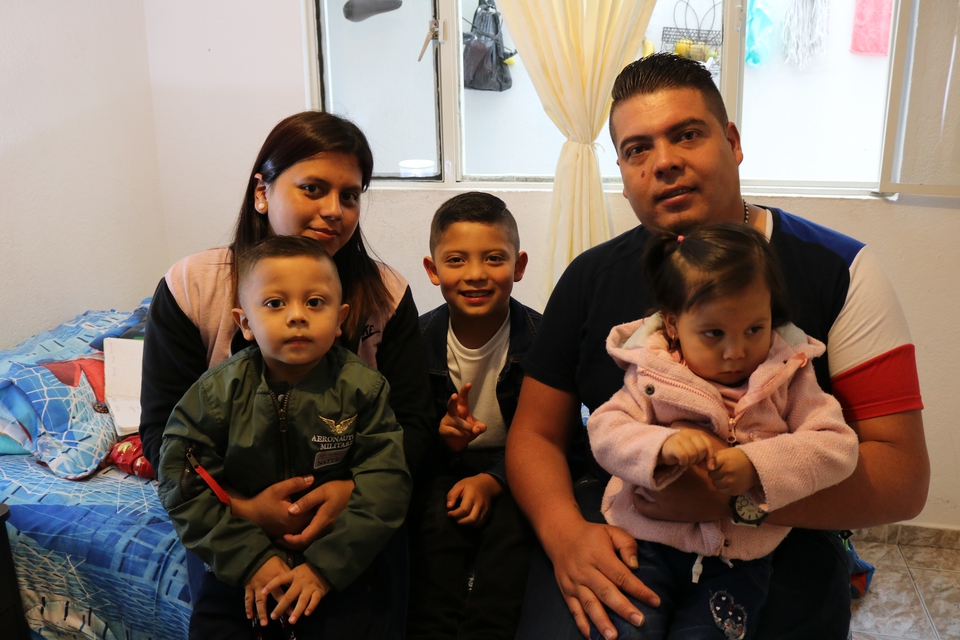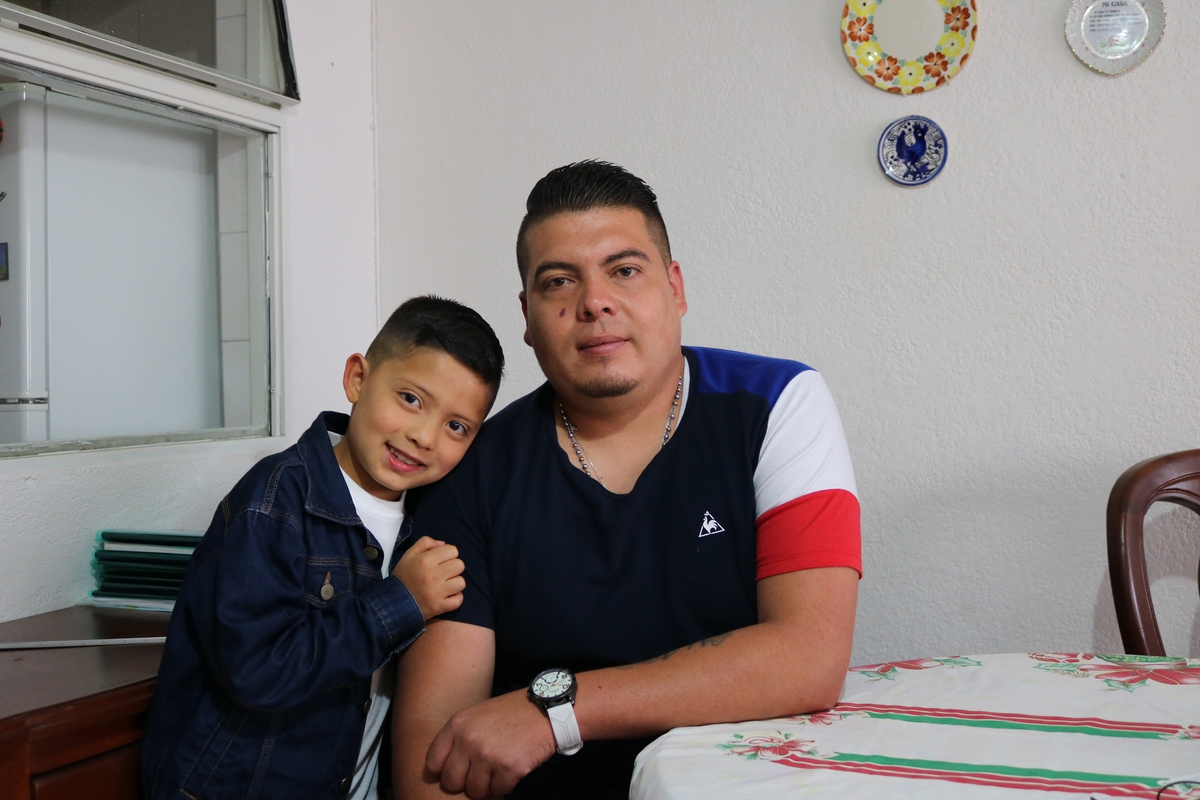“When I was in the institution, I used to miss my family. I’d cry, I’d wish I was with them,” says Camilo. He was seven when he was taken into the care of the Michín Foundation in 2019, as his mum was no longer able to look after him.
As part of our mission to end the institutionalisation of children in Colombia, we’ve been working with the Michín Foundation to transition away from institutional care and provide support for children within families. Together, we helped bring Camilo home to live with his father Carlos, great-grandmother Isabel, stepmother Miriam, and younger half-siblings.
“Now I’ve returned home, I live with my great-grandma, my dad, my little siblings, and I enjoy being with them, I feel better,” says Camilo. He likes crafts and enjoys making things to decorate his bedroom now that he has one of his own.
“I have a good place to sleep – when I left the institute, I saw everything differently, I saw my lamp, my nightstand, my bed. I eat well at breakfast, and I also have a nice lunch and dinner. What I like the most is that my grandma, when she has errands to do, always calls me: ‘Cami, let’s go!’, and that makes me happy.”
Michín social worker Nathaly helped the family settle into their new life together. “The main aim with this family was to strengthen the bond between father and son,” she says. “Because Camilo lived all his life with his mother, there wasn’t a strong bond.”
Welcoming a new member is a big change for any family, and they often need expert emotional support to adapt.
“To be honest, this process, at the beginning, was a bit tough,” says Carlos, who works as an airport logistics operator. “But because [we had support] for a year, we learned about values and how to take care of children, how to raise a child well. My son is a child who has values. For example, when he gets up, he makes his bed. I see that he has changed, he is much happier now.”
Nathaly agrees: “Nowadays, we have a father who is much more affectionate with his son, which has had an enormous impact, and we have a child who is much more spontaneous, much more outgoing, who is closer with his father. It has changed the history of this family. Today, we can say they have healthy and harmonious bonds between them.”
“My dad is a good father,” says Camilo. “He treats his wife very well, he makes breakfast for [me and] my little siblings. So, I am happy.”
With our support, this family has been able to create a loving and supportive home, and we’re also supporting Camilo’s mother to stay in touch with him. Now the family can look forward.
“What I want the most is for my family to be well, to be economically stable,” says Carlos. “[I want] to bring them what they need. Even, sooner or later, buy a modest house.”
Camilo wants to look after people too:
“When I grow up, I want to be a firefighter,” he says. “I want to make some friends so I can put out fires with them, because I want to rescue people who are in danger.”

Brief project and country background
As part of our mission to end the institutionalisation of children in Colombia, we’ve been working with our partners at the Michín Foundation in Bogotá, to demonstrate how to support family reunification by transitioning away from an institutional care model to providing support for children within family settings.
By working with young people and their families through home visits – and, due to COVID-19, remote support – in areas like positive parenting skills, education and extra-curricular activities, in 2020 we helped reintegrate 125 boys and girls with their families. Through the project we were also able to offer emergency financial and practical support to families affected during the pandemic.
Names have been changed in this case study.



